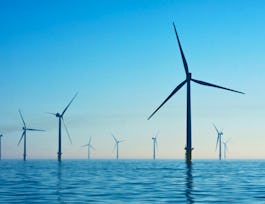Energy transitions are not solely technological or economic shifts; they have profound social impacts that can either reinforce or challenge existing inequalities. The benefits and burdens of energy transitions are often unevenly distributed, with vulnerable communities frequently facing the greatest risks, such as displacement and environmental degradation, while having limited access to the benefits, such as cleaner energy and livelihoods.


Understanding justice and fairness in energy transitions

Instructor: Michèlle Bal
Sponsored by Coursera Learning Team
Details to know

Add to your LinkedIn profile
10 assignments
December 2024
See how employees at top companies are mastering in-demand skills


Earn a career certificate
Add this credential to your LinkedIn profile, resume, or CV
Share it on social media and in your performance review

There are 6 modules in this course
What's included
2 videos6 readings2 assignments4 discussion prompts
What's included
2 videos14 readings1 assignment3 discussion prompts
What's included
1 video11 readings3 assignments9 discussion prompts
What's included
1 video12 readings3 assignments10 discussion prompts
What's included
1 video6 readings1 assignment2 discussion prompts
What's included
2 readings1 peer review
Instructor

Offered by
Why people choose Coursera for their career




Recommended if you're interested in Social Sciences

University of Colorado Boulder

University of California San Diego

Erasmus University Rotterdam

EDHEC Business School

Open new doors with Coursera Plus
Unlimited access to 10,000+ world-class courses, hands-on projects, and job-ready certificate programs - all included in your subscription
Advance your career with an online degree
Earn a degree from world-class universities - 100% online
Join over 3,400 global companies that choose Coursera for Business
Upskill your employees to excel in the digital economy
